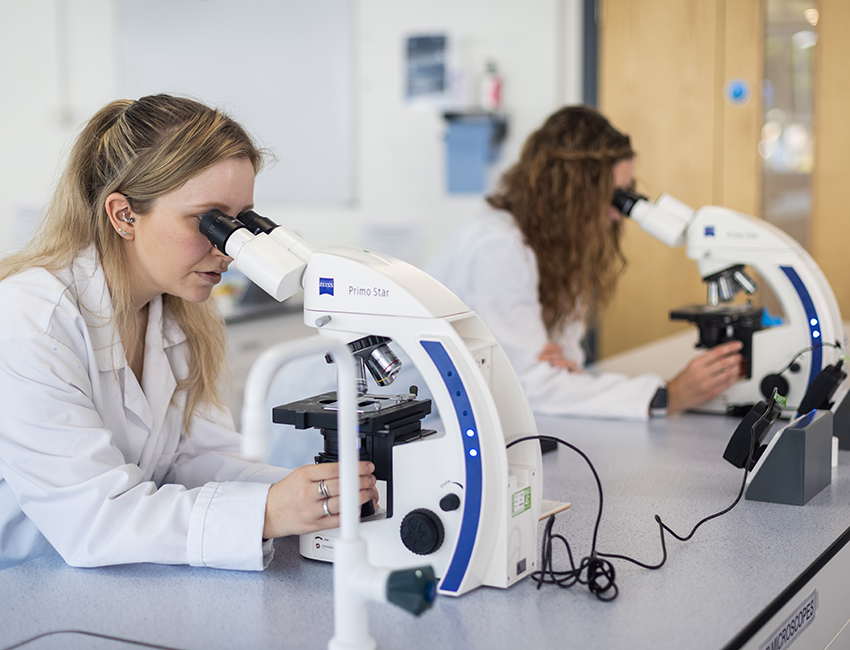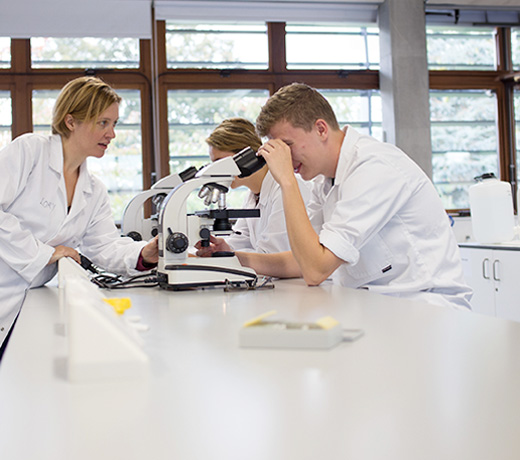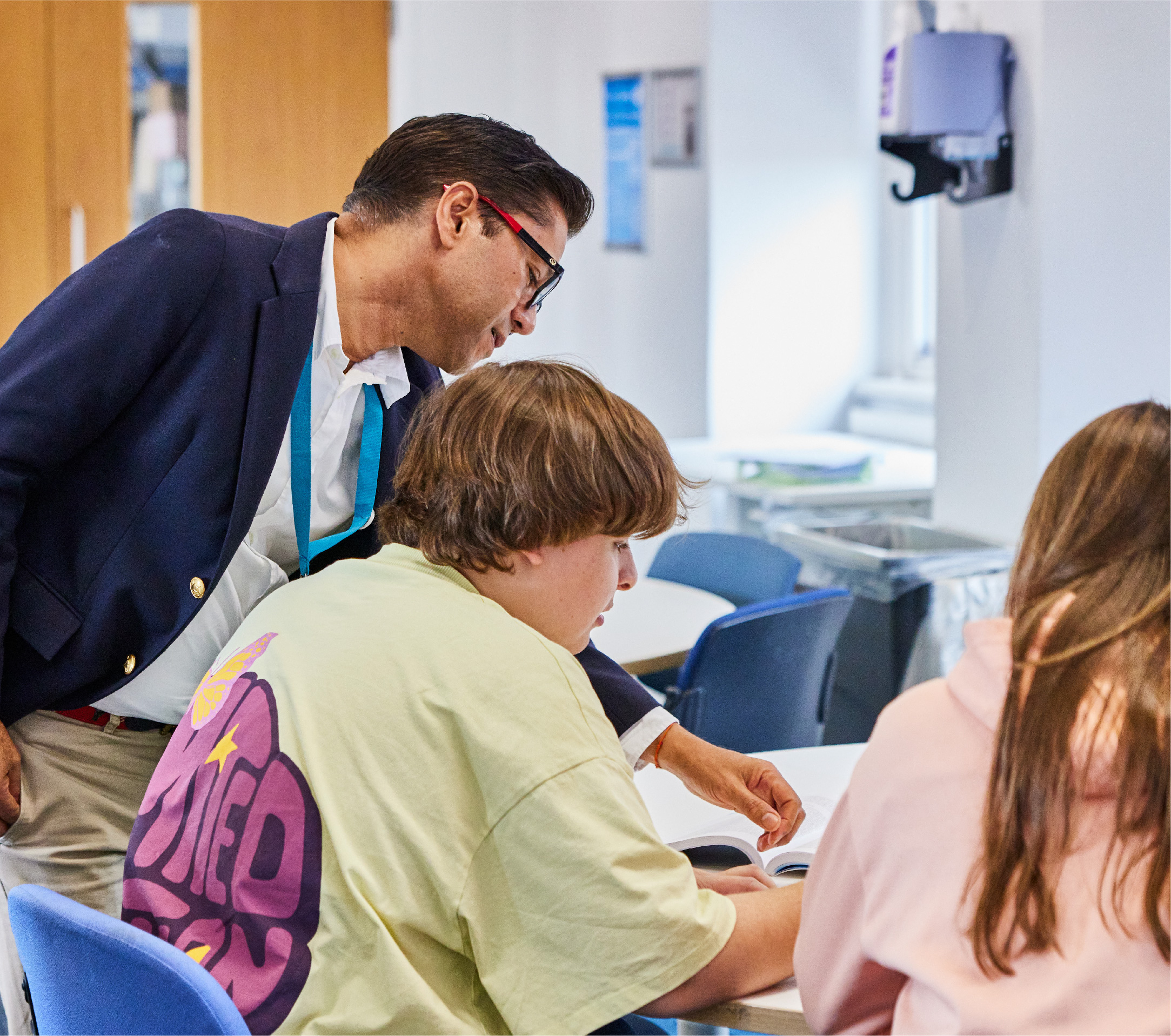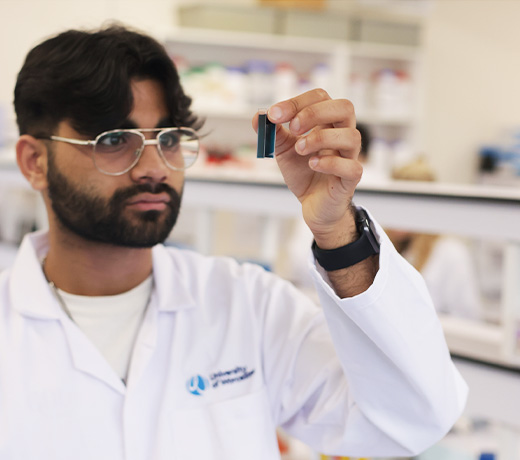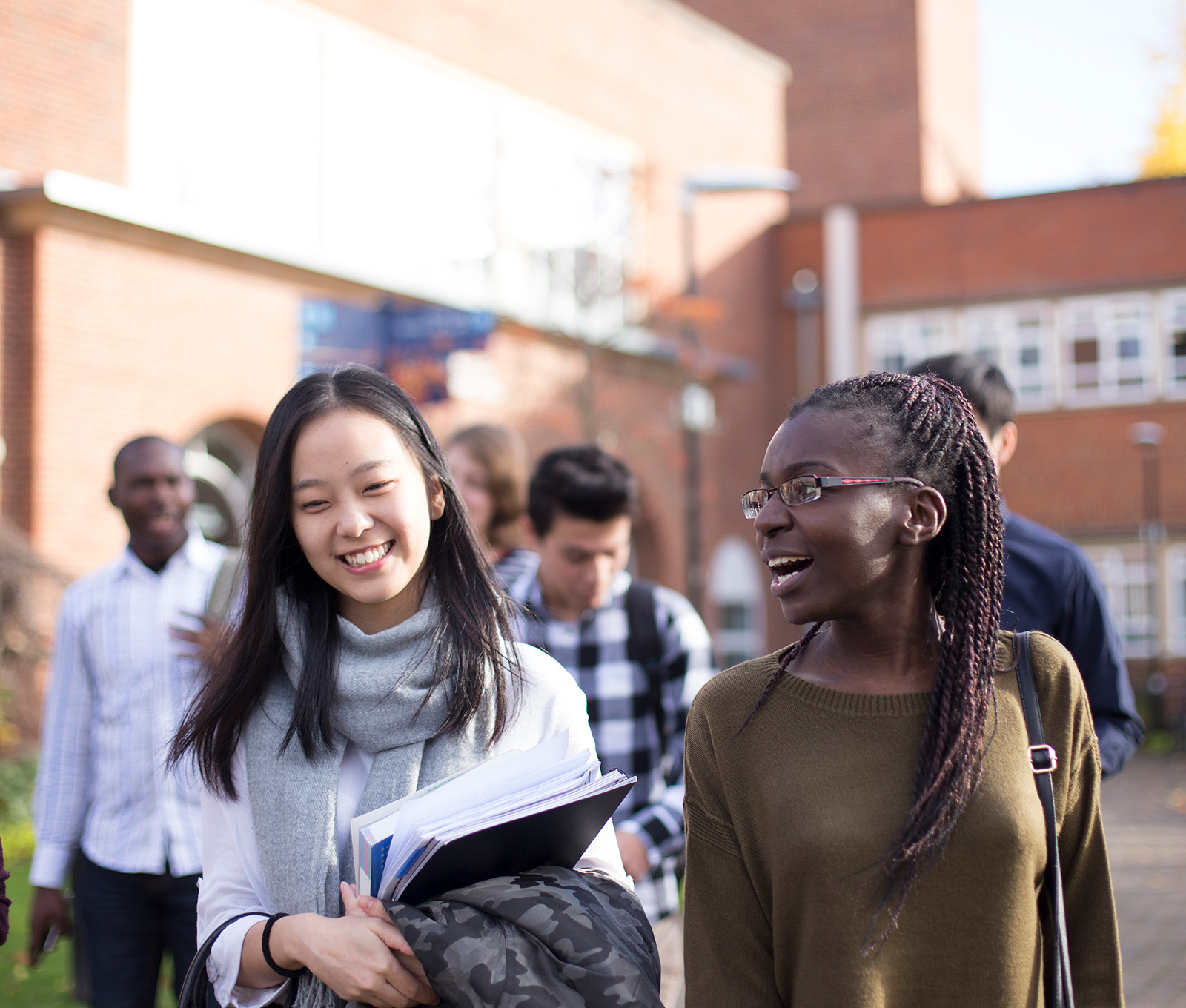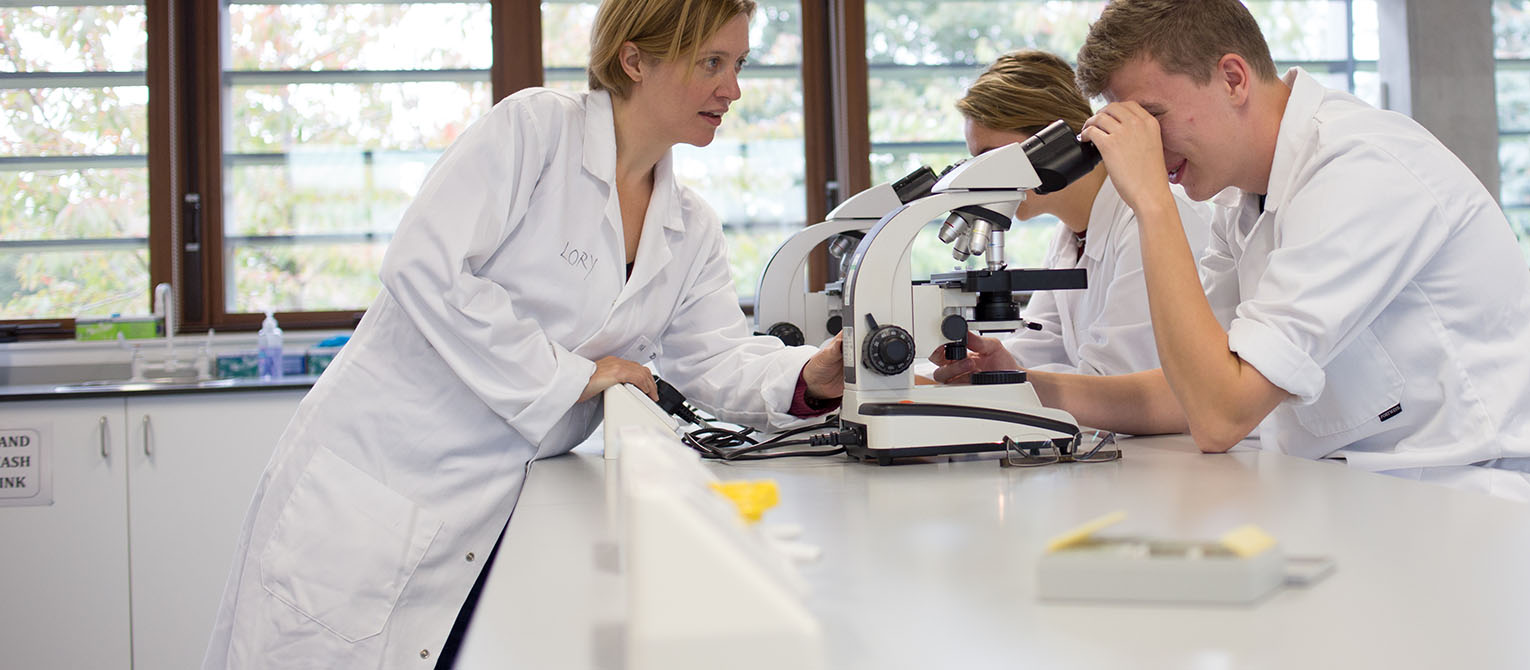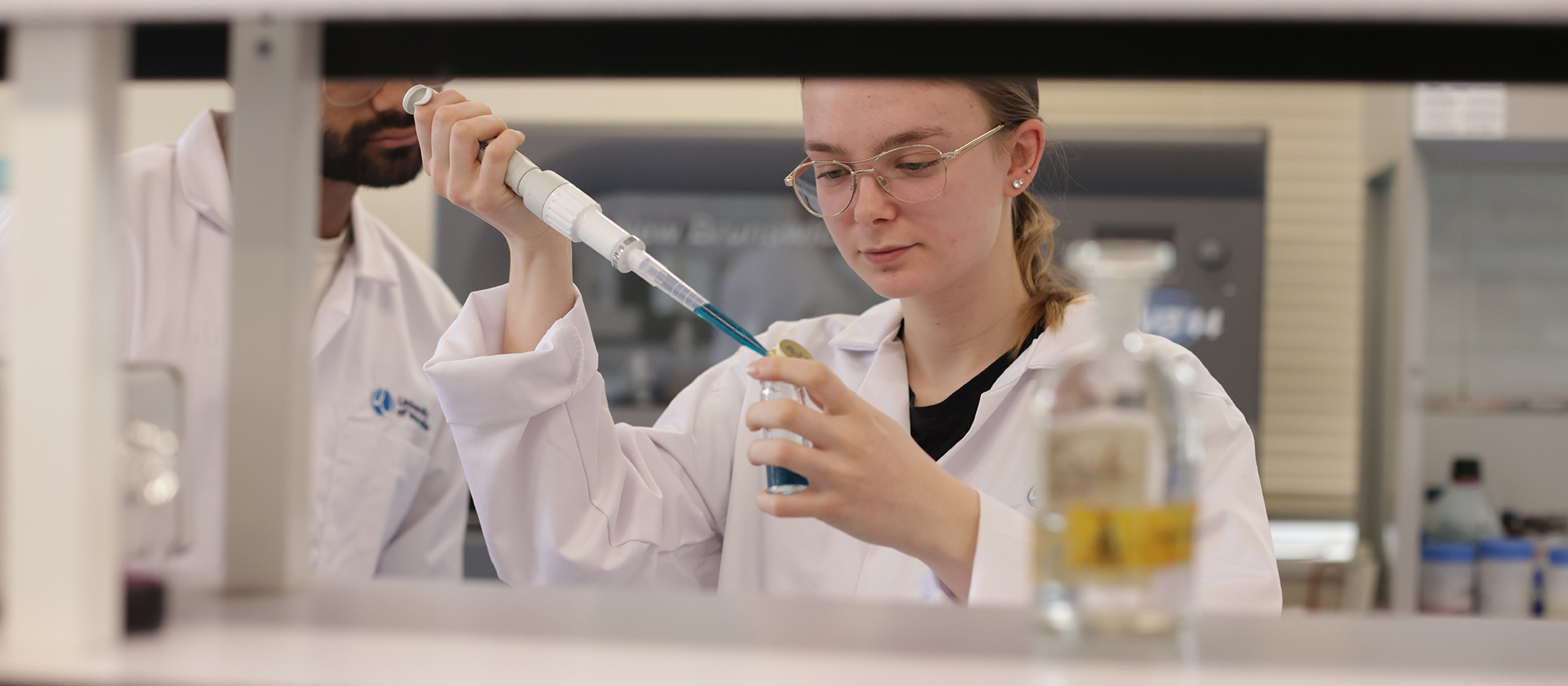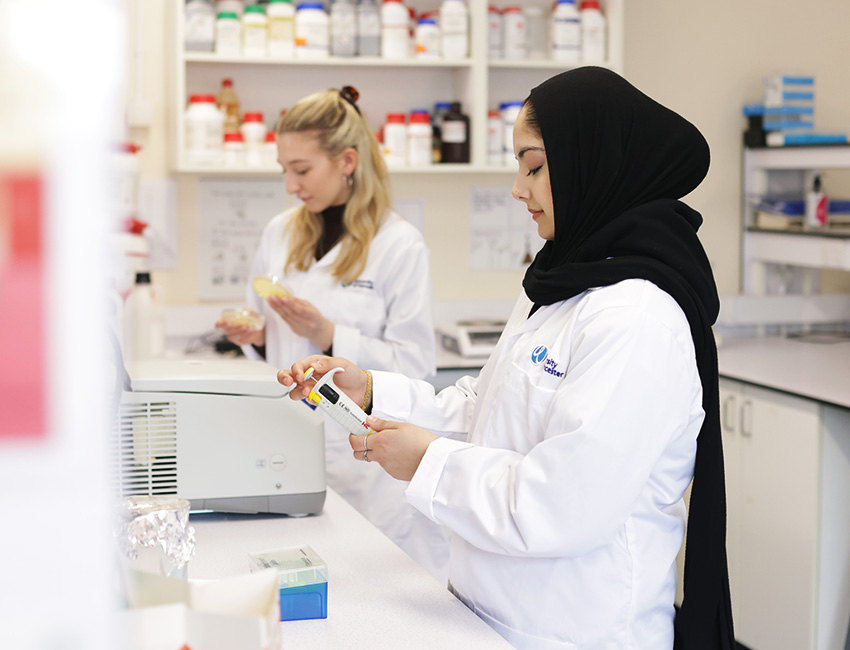On this course, you'll investigate human health, from the processes that cause cancer to the progression of Alzheimer's disease. You'll be taught by experts in the field who research actively into the biochemistry of leukaemia, human nutrition and neuroscience.
of students said this course is often intellectually stimulating
of students said it has been easy to access subject-specific resources when they needed to
Accredited programmes contain a solid academic foundation in scientific knowledge and skills, and prepare you to address the needs of the world.
University of the Year finalist
Recognised for our graduate success, we’re shortlisted for University of the Year in the Times Higher Education Awards 2025.
Overview
Biochemists are at the heart of helping to build a future where medicine becomes personalised and more effective.
On this course, you'll study Genetics, Molecular Biology, Pharmacology, Immunology and Bioinformatics, designed to help you access any of a large number of career opportunities open to the graduate Biochemist.
At Worcester, you'll have access to new laboratories and extensive specialist equipment, providing you with an inspiring environment in which to develop and test your ideas. You'll also benefit from small class sizes and easy access to the lecturing staff in the course team, meaning you'll learn in a friendly and productive atmosphere.
We have excellent active research partnerships with many UK and international institutions, and you'll undertake a research project of your own in your final year of study. Recent projects have included the impact of SuFu gene knockouts on growth and development of cells, trialling the impact of hydroxyurea and other drugs on acute myeloid leukaemia cells, and comparing the impact of chlorhexidine against other antimicrobial agents on oral plaque bacteria.
Work Experience
During your time at Worcester you’ll have the opportunity to take part in subject-related work experience and volunteering activities. In your second year you can choose to take a work experience module, enabling you to apply their scientific and personal skills within a real working environment.
Course content
At Worcester, you can shape your Biological Sciences (Biochemistry) BSc to suit you, with a range of optional modules to choose from in your second and third years.
Optional modules will run if they receive enough interest. It is not guaranteed that all modules will run every year.
Careers
Globally, the employment of biochemists is growing, meaning you'll have excellent opportunities for employment. Our graduates have successfully gained jobs as:
- Scientific researchers
- Biotechnologists
- Clinical scientists
- Laboratory technicians
- Pharmacologists
By studying Biochemistry, you’ll develop key skills in problem-solving, critical thinking, data evaluation and communication that will be valuable to many areas of employment. These transferable skills could lead to you considering other career paths, including:
- Primary or secondary teaching
- Scientific publishing
- Accounting
- Toxicology
- Environmental management
If you do choose to become a teacher, you can train to teach with a one-year Primary or Secondary PGCE at Worcester.
Course highlights
Teaching and Assessment
We enable you to develop the independent learning capabilities that will equip you for lifelong learning and future employment, as well as academic achievement.
A mixture of independent study, teaching and academic support through the personal academic tutoring system enables you to reflect on progress and build up a profile of skills, achievements and experiences that will enable you to flourish and be successful.
Teaching and assessment contents
You will be taught through a combination of activities including on-campus and online lectures and seminars (tutor and student-led), practical laboratory investigations and/or field trips, tutorials, directed reading, self-directed study, group work and team projects, reflective practice, class discussions, case studies, independent research, and interactive workshops. Interactive workshops take a variety of formats and are intended to enable the application of learning through discussion and small group activities. Seminars enable the discussion and development of understanding of topics covered in lectures, and laboratory practical/field work sessions are focused on developing confidence in relevant practical skills and the ability to relate theory to practice.
To maximise flexibility for the wide range of students typically studying at the University of Worcester, some sessions may be delivered as blended learning via platforms such as the Blackboard VLE.
In addition, meetings with Personal Academic Tutors (PATs) are scheduled on at least four occasions in the first year and three occasions in each of the subsequent years of a course. These meetings are designed to support reflection on feedback, identify learning needs and to help students with their more general personal academic development. There is an opportunity to undertake a work experience module at Level 5. Students may also engage with an exchange scheme, spending a semester abroad.
The BSc (Hons) Biological Sciences course handbook shows how the Science Personal Development Planning skills, (based on the QAA Subject Benchmark Statement Biosciences October 2019), are linked to the individual modules in the course. Key and Transferable skills are mainly expressed through the Science PDP scheme. Practical skills for employment are also addressed through the Biosciences Skills Passport where students on all levels of the course will have the practical skills, they have gained recorded.
Meet the team
Just a few of the science lecturers you'll learn with.
Entry requirements
UCAS tariff points required: 96 - 104
| Qualification | Grade |
|---|---|
| A-level | CCC - must include A-Level Biology, Human Biology or Chemistry and A-Level in another science, Maths or Statistics |
| A-level | BCC - must include A Level Biology, Human Biology or Chemistry |
| BTEC National Extended Diploma | MMM/DMM |
| T-level | Pass (C or above) |
We do accept Access to HE Diplomas and other qualifications which may not exactly match the combinations above. Work out your estimated points with the UCAS tariff calculator.
Any questions?
If you have any questions about entry requirements, please call our Admissions Office on 01905 855111 or email admissions@worc.ac.uk.
Fees
Fees contents
UK and EU students
In 2026/27 the standard fee for full-time home and EU undergraduate students on BA/BSc/LLB degrees and FdA/FdSc degrees is £9,790 per year.
Tuition fees are reviewed annually and may increase each year for both new and continuing students.
For more details on course fees, please visit our course fees page.
International students
In 2026/27 the standard tuition fee for full-time international students enrolling on BA/BSc/LLB degrees and FdA/FdSc degrees is £17,200 per year.
Tuition fees are reviewed annually and may increase each year for both new and continuing students.
For more details on course fees, please visit our course fees page.
Student view
How to apply
How to apply contents
Applying through UCAS
UCAS is the central organisation through which applications are processed for full-time undergraduate courses in the UK.
Read our how to apply pages for more information on the application process, or if you’d like to apply for part-time study.
Biological Sciences (Biochemistry) BSc (Hons) - C700
Contact
If you have any questions, please get in touch. We're here to help you every step of the way.
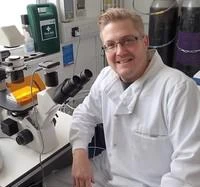
Admissions Office
admissions@worc.ac.uk01905 855111More to explore
Open Days
Visiting us is the best way to get a feel for student life at the University of Worcester.

The City of Worcester
Worcester is a welcoming university city with great transport links and plenty of student parking.

Accommodation
Benefit from our accommodation guarantee. We have rooms on campus to suit every budget including en-suite options.

